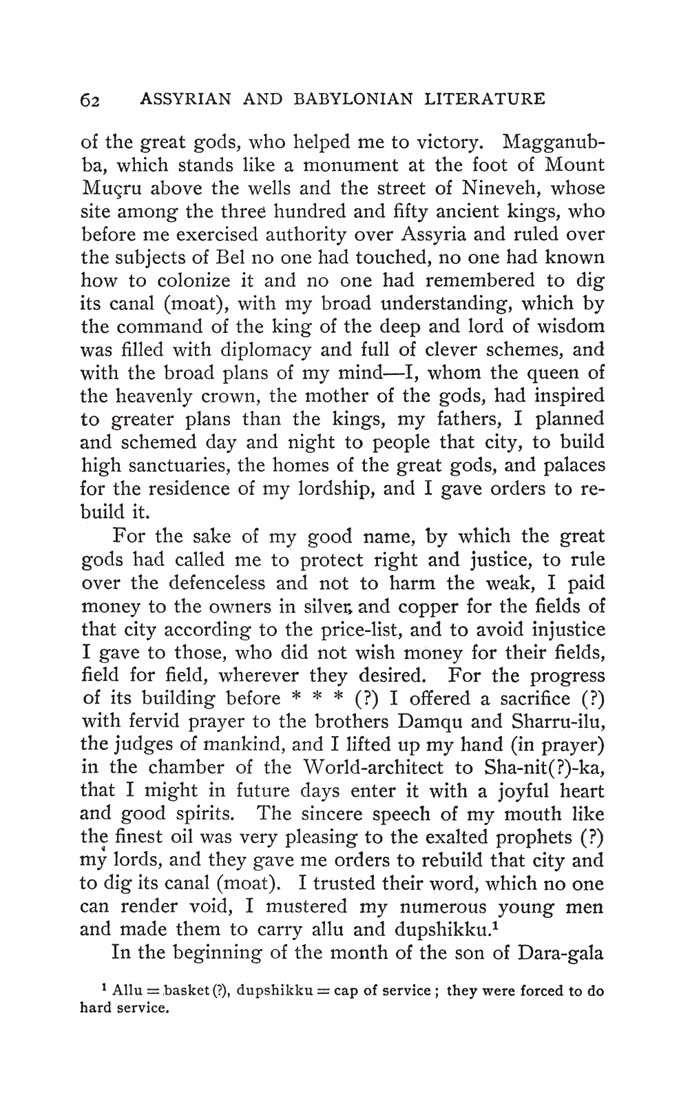62 ASSYRIAN AND BABYLONIAN LITERATURE
of the great gods, who helped me to victory. Magganub-
ba, which stands like a monument at the foot of Mount
Mu^ru above the wells and the street of Nineveh, whose
site among the three hundred and fifty ancient kings, who
before me exercised authority over Assyria and ruled over
the subjects of Bel no one had touched, no one had known
how to colonize it and no one had remembered to dig
its canal (moat), with my broad understanding, which by
the command of the king of the deep and lord of wisdom
was filled with diplomacy and full of clever schemes, and
with the broad plans of my mind—I, whom the queen of
the heavenly crown, the mother of the gods, had inspired
to greater plans than the kings, my fathers, I planned
and schemed day and night to people that city, to build
high sanctuaries, the homes of the great gods, and palaces
for the residence of my lordship, and I gave orders to re¬
build it.
For the sake of my good name, by which the great
gods had called me to protect right and justice, to rule
over the defenceless and not to harm the weak, I paid
money to the owners in silver, and copper for the fields of
that city according to the price-list, and to avoid injustice
I gave to those, who did not wish money for their fields,
field for field, wherever they desired. For the progress
of Its building before ***(?) I offered a sacrifice (?)
with fervid prayer to the brothers Damqu and Sharru-ilu,
the judges of mankind, and I lifted up my hand (in prayer)
in the chamber of the World-architect to Sha-nit(?)-ka,
that I might in future days enter it with a joyful heart
and good spirits. The sincere speech of my mouth like
the finest oil was very pleasing to the exalted prophets (?)
my lords, and they gave me orders to rebuild that city and
to dig Its canal (moat). I trusted their word, which no one
can render void, I mustered my numerous young men
and made them to carry allu and dupshlkku.^
In the beginning of the month of the son of Dara-gala
' Allu = hasket (?), dupshikku = cap of service ; they were forced to do
hard service.
|








